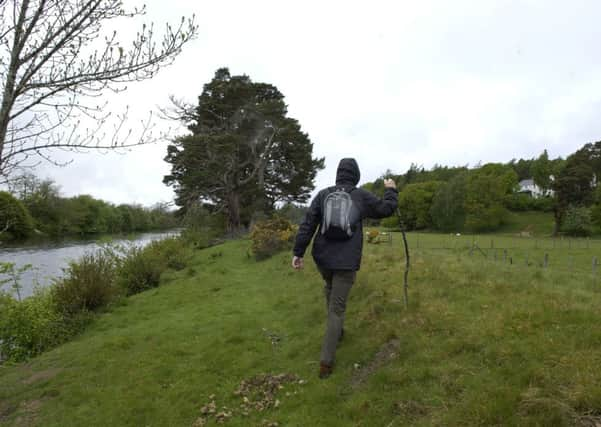Scottish landowners express fears on right-to-buy


A study of estate owners and managers found that 47 per cent were worried about plans to redistribute land ownership and Scottish independence.
The finding was included in an independent study that found members of the body representing landowners, Scottish Land & Estates (SLE), contribute £471 million to Scotland’s output.
Advertisement
Hide AdAdvertisement
Hide AdAn estimated 8,114 full-time jobs are linked to SLE membership, which accounts for 65 per cent of all Scotland’s private estates.
The Scottish Government is currently overseeing a land reform review, which is examining the possibility of extending the right to buy out landlords.
An agricultural holdings review is also looking at giving an absolute right-to-buy to tenant farmers whether the landowner is willing to sell or not.
The study was undertaken by the independent rural advisory company Rural Solutions and Scotland’s Rural College.
The paper said: “The topic that came up most often was land reform and the proposals around absolute right-to-buy. It is no surprise to find that this subject was causing concern and uncertainty. The subject of land reform also came up regularly in the interviews even though there was no line of inquiry specifically designed to introduce the subject.”
Published at SLE’s annual conference in Edinburgh, the study found that estates were involved in 20 business sectors, including housing provision, tourism, energy, agriculture, forestry, country sports and conservation.
Luke Borwick, SLE chairman, said: “This study clearly demonstrates the very substantial contribution made by estates. They are part of the fabric of rural Scotland and estate owners want to play their part in ensuring rural Scotland is a thriving and vibrant place to live and work.”
He added: “We hope this study will show that landowners are part of the solution rather than the problem. The study brings much needed hard evidence to a debate about land ownership that is frequently not evidence-based.”
Advertisement
Hide AdAdvertisement
Hide AdThe study was based on the activities of 277 estates, ranging in size from 100 hectares to 20,000 hectares.
Community Land Scotland, the organisation representing community landowners, argued that the report underlined the need for land reform.
It said: “It is particularly striking to see ownership in so few hands and those same hands for sometimes centuries. It demonstrates just what a monopoly a few people have over land in Scotland.
“Worryingly, the report also reveals that the concentration in direct control of land is set to continue.
“When you ally that to the vast sums of public money flowing into these estates, it shows how Scotland’s land ownership patterns also concentrate wealth and privilege.
“As it stands, the report is an eloquent statement of the need for more land reform.”
SEE ALSO: